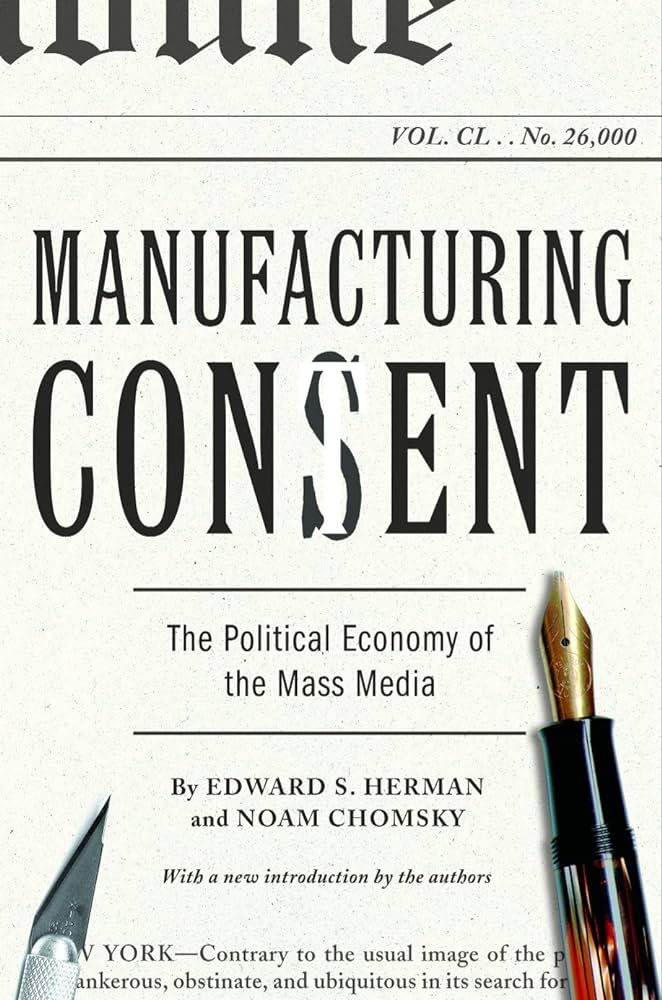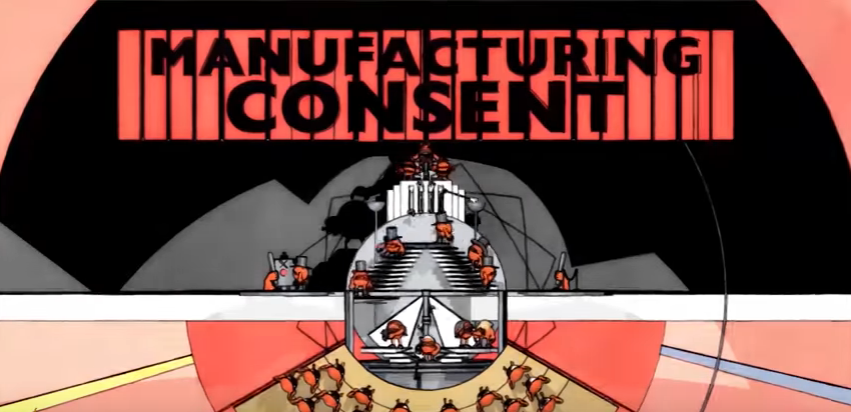Manufacturing Consent is a concept from media criticism and political economy, originally proposed by Edward S. Herman and Noam Chomsky in their book of the same name, Manufacturing Consent. This concept is mainly used to describe how the media shape public opinions and perceptions through news reports and public discussions without being explicit, thereby serving specific interest groups in the political and economic fields.

The core idea is that although the media is generally regarded as a neutral and objective source of information, in fact, due to the role of funding, political influence and market forces, the media often indirectly support and disseminate views that are beneficial to the ruling elite and economic powers. and agenda. This phenomenon is seen in many forms of media, including television, newspapers, movies, and online media.
Processes that create consent include selective reporting (emphasis on certain events while ignoring or downplaying others), framing (presenting information in specific ways to guide opinion formation), and agenda setting (setting the topics and priorities for public discussion).
This concept has important implications for understanding how contemporary media ecologies, political propaganda, and public ideologies are formed.
- Differences in media coverage
Media coverage is often driven by ratings and clicks, so they may be more inclined to cover topics that are sensational or controversial. In addition, media reports may also be affected by their own biases. For example, the owners of new agencies may influence the bias of reports.
Therefore, we need to be aware of these issues and approach media coverage critically. Rather than accepting everything they report, we should do our own research and get the full picture to better understand the real risks we face.
Only by understanding this can we make informed decisions about our health and not be misled by media bias. At the same time, this is also a good example of our critical thinking about the media, letting us understand that in the process of obtaining information, we need to think independently and not be swayed by one-sided groups.

*Reference:
Institute of Policy Alternatives (Montréal, Québec). (1994). Manufacturing Consent ,Noam Chomsky and the Media : the Companion Book to the Award-winning Film by Peter Wintonick and Mark Achbar. Black Rose Books.
Silvia Knobloch-Westerwick. (2014). Choice and Preference in Media Use. Taylor & Francis.


This blog post offers a valuable and thought-provoking examination of the ‘Manufacturing Consent’ theory, highlighting how media can subtly shape public opinion to benefit certain political and economic interests. The emphasis on the importance of critical thinking in media consumption is particularly commendable, as it empowers readers to question and research beyond surface-level reporting. By acknowledging the role of media in influencing public perception, the post effectively encourages a more discerning and independent approach to consuming news, which is crucial in today’s information-saturated world. This perspective is essential for fostering a more informed and critically engaged society.
I especially enjoyed reading and researching and learning more about this manufacturing consent yopic through your post. It was informative to read